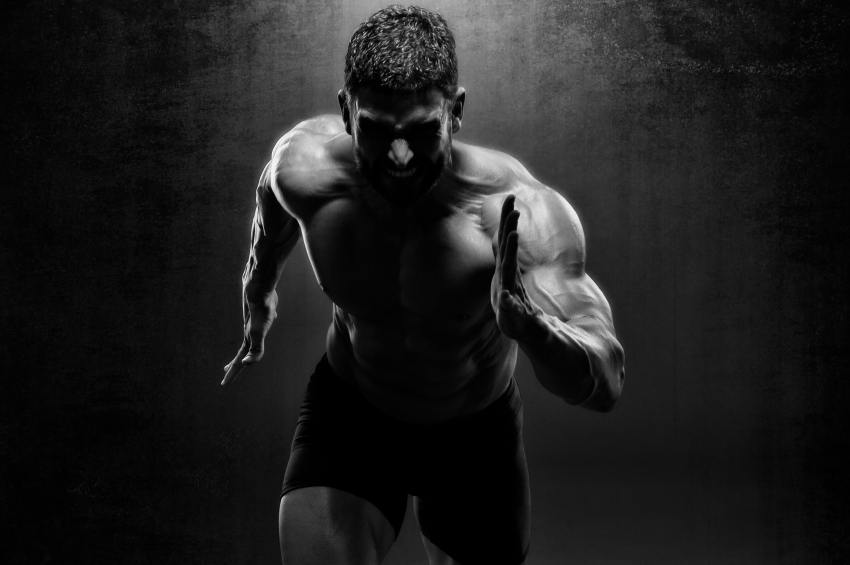Finding A Niche As A Short Athlete
Finding A Niche As A Short Athlete
Published May 2015
Few sports favor short athletes. Although several short athletes have made careers out of defying expectations, the unlikelihood of their triumphs has contributed to their fame. For short athletes, aspirations of glory can feel unrealistic. Our size is more often a hindrance than an asset. I felt this way until my early thirties. That was when I found my niche.
See Also: Major League Baseball's Shortest Players
Short athletes must apply their strengths while downplaying their weakness. All athletes must do this, but its critical for short athletes. Some short athletes might be unusually gifted and able to overcome limitations through sheer prowess. Far more of us have to work to find what gives us the best opportunity to excel. Discovering my niche took decades. As a child, I was the smallest kid in my class. I was a relatively fast runner, but I wasnt especially athletic. I couldnt catch well, throw far, or kick hard. My parents wanted me to play sports, but I was reluctant. Part of me feared failing in front of my peers. More than that, I simply preferred being active on my own terms.
STARTING FROM THE BOTTOM
At my parents urging, I joined the soccer team in fifth grade. My speed helped, but not enough. I was clumsy with my feet. Taller boys with longer strides overpowered me. I spent several years as a benchwarmer. In ninth grade, I quit out of diminishing interest. In sixth grade, I joined the wrestling team. This was a better fit, because I could compete against boys my size. I liked the individual nature of the sport. Victories were special because I earned them on my own.Of course, this increased the sting of losses. I was better at wrestling than at soccer, but my success was padded. Some teams didnt have anyone small enough for my weight class, so many of my wins were forfeits.
Throughout high school, I had another athletic pursuit. My cousin and I took up BMX riding. He liked to jump on dirt trails. I wasnt great at jumping, because despite my low weight, I didnt have the strength to pull up enough on the bike. I preferred long, meandering rides to jumping on trails. Wed spend entire days on our bikes. On my own, Id routinely take thirty-mile round trip rides on my tiny BMX bike. I grew fond of the open road. During college, I worked at a summer camp. I rode to camp each day. By this time, I had a road bike. It expanded my range. On the weekends, I pushed myself to ride farther and faster on it. My strength grew along with my confidence. Road biking was becoming my niche. I wanted to know how I compared with other riders, so I did some club rides. I had upgraded to a better road bike, so I didnt feel out of place among dedicated cyclists. What I found impressed and inspired me. With the exceptions of a few experienced racers, I was every bit as strong as the club riders. On hills, I was stronger than most. My size actually helped while ascending.
The Largest Gallery Ever Of Over 100 Famous Short Men
THE GREAT LEAP FORWARD
This prompted me to try racing. I registered for an unsanctioned race that didnt require a license. It was a dose of reality. I got dropped almost immediately. The defeat didnt discourage me. I worked in the offseason to improve. I began training with faster groups. My efforts helped, to a point. Almost every rider around me was taller by several inches. I liked the challenge of keeping pace with them, but I eventually hit a wall. I stopped advancing relative to other riders. I had a few frustrating seasons of expending energy but not making new gains. Then a fellow rider told me about a local triathlon. I hadnt considered the sport. I wasnt much of a swimmer. I ran, but mostly to keep fit for riding. Each discipline in triathlon favored taller athletes. Despite these issues, I registered, trained, and did much better than I had expected. Over the next few seasons, triathlon all but replaced bike racing.
I experimented with various distances. In long distance races, the stroke and stride advantage of tall athletes had too much time to add up. I did better in sprint triathlons. I focused my training on these. They became my new niche. Over short distances, especially on hilly courses, my size was an advantage. I learned the right stroke technique, the right cadence and position, and the right running stride for short distances. I started placing in my age group. Soon, I was winning in my age group. True, I was competing against a smaller pool of dedicated athletes by choosing sprints. However, among this pool, I stood out more than I had in any other sport I had tried.
Advertise With Short Kingz And Reach 100,000+ Per Month!
CONCLUSION
My triathlon days are behind me, but the lessons remain. The short athlete has to find a niche. This might be in a sport with weight classes like boxing, a sport favoring low center of gravity like surfing or powerlifting, or a skill sport like golf. Whatever it is, exploiting strengths and minimizing weaknesses can lead to a satisfying athletic career. A wise choice of sport is as important as a dedicated work ethic.
Like This Article? Chat About It And More In Our Forum For Short Men!v



 Home
Home Blog
Blog Fashion
Fashion Community
Community Galleries
Galleries SHOP
SHOP About
About Advertise
Advertise






 Discuss anything in our forums!
Discuss anything in our forums!
.png)

[0 Comment]